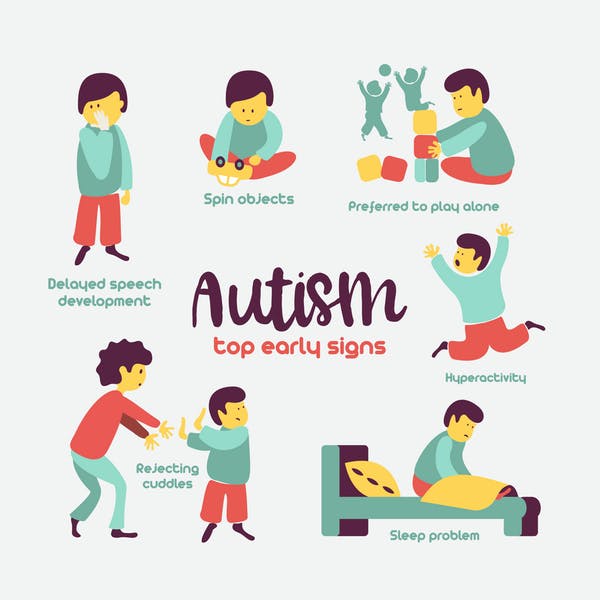Best-selling author Shonda Schilling says that each child with Asperger syndrome or another autism spectrum disorder has unique strengths and problems. Her son Grant, now 11 years old, is one of those children.
She is the author of The Best Kind of Different: Our Family’s Journey with Asperger Syndrome (HarperCollins, $25.99). If the last name rings a bell, it’s because she’s the wife of retired Phillies and Red Sox all-star pitcher Curt Schilling. Ironically, Shonda says the first time Grant played baseball, it “was a disaster” and now he has no interest in it.
Her son was diagnosed with Asperger when he was 7 years old, and according to an excerpt from her book, it sent the family household into “chaos.” She says the challenges of raising a child with Asperger or any autism spectrum disorder are many, and those same challenges exist when it comes to youth sports.
Starting in a Sport
Grant, who Shonda says is a “phenomenal” athlete, has found sports success in indoor soccer and swimming. She says outdoor soccer was too big for Grant to wrap his mind around. Despite learning through trial-and-error which athletic activities are best for her son, she advises parents of children with Asperger syndrome who wants to play a particular sport, “If they love it, let them play it.”
The mother of four suggests parents talk to the coach before the season and find out first if a child with Asperger will be welcome on the team. If so, give the coach techniques to deal with behavioral issues that are likely to occur. Shonda says the most important thing is to make sure the child participates in all practices and plays the entire season.
“Too often, when you have a child with Asperger who might not be able to find his shin guards one night, it’s easier to just say, ‘Forget practice tonight.’ But you can’t let that happen. It gets them out of their routine,” she says.
Tips for Coaches
Shonda says that coaches and parents who don’t understand Asperger often think a child’s behavior is a result of poor manners or being disrespectful, when, in fact, the child is just overly focused on something else.
“When you are coaching Grant, he might talk too close to you or touch you because he has sensory issues, and that can be awkward,” Shonda says. “But nothing they (children with Asperger) are doing is out of disrespect. If they don’t look you in the eye and are locked in on a thought and can’t answer you, it’s because they can’t break free from that thought. It’s just the way their minds work.”
Shonda suggests to coaches that being firm and avoiding choices will help prevent situations from spiraling out of control. But, despite the use of various techniques and interventions, there will still be times when a child with Asperger will lapse into atypical behavior, as Grant did earlier this season in the middle of a soccer game.
“His shoe was untied and he became completely disconnected from what was going on around him,” Shonda recalled. “He sat down in the middle of the action and just focused on trying to get his shoe tied up again, which he doesn’t know how to do. The coach learned from this and the next game as soon as he saw Grant’s shoe come untied, he immediately took him out, tied his shoe in a double knot and sent him back in.”
Like a lot of parents, Shonda coaches her daughter in softball, but says that it’s best for her and Curt to not coach Grant in any sport. “I am his comfort zone. I need to make that break and teach him that other people are in charge. He knows I’m in charge, but he needs to learn that others can be too.”
Winning the Daily Struggle
Shonda says the experience of raising Grant has made her a better person. She hopes that her book will enhance the experience for other children with Asperger, including those who participate in youth sports.
“I think parents need to take their own selfish goals out of [youth sports] and we have to get back to the basics of raising happy, respectable children. Somehow we are taking the fun out sports. We are teaching achievement, being the best, winning. Somehow, the fun is not there anymore. And it should be.”
Adds her husband, Curt, “Being a ‘star’ when you are talking about Asperger has to be about the child. But I’d argue that’s the case with any child. What you want for your child will likely never have anything to do with what your child truly wants. Your children will rise to the occasion, excel at things they love and want, not what you want them to love and want.”
“Grant loves to swim, but something happened in a practice that made it a nightmare. So now, when he goes to practice or a meet, yes, he’s disappointed when he finishes last, but you can sense the pride in him that he actually did it,” says Curt. “And our reinforcement and pride comes in knowing our 10-year-old faced a real physical fear, overcame it and ‘went for it.’
“That works for us. There’s no need for Olympic gold, just win a daily struggle one time, then build on it.”
Jon Buzby is a local freelance writer.






